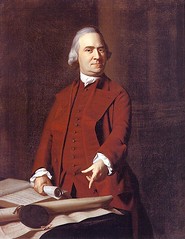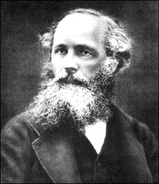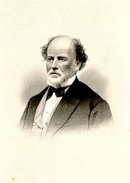Are You an Israelite Sheep or a Judeo-Christian Sheeple?
There are well over four dozen references to sheep found
in the Old Covenant (Old Testament or OT) and the New Covenant (New Testament
or NT) Scriptures. What is one characteristic of sheep? Sheep follow each
other.
This missive discusses the difference between true
Israelite sheep and judeo-christian sheeple. Israelite sheep tend to examine
the Scripture without bringing to their studies any preconceived ideas.
Israelite sheep examine the biblical text, including the original Hebrew and
Greek texts, especially the original Hebrew and Greek texts, and not
just the multitude of English language versions of translations; the context
wherein those texts are found, use proper exegesis, and come away with an
accurate interpretation of what the Scripture actually says, despite what the
text says, and not what they want it to say.
A true
Christian Israelite will “prove all things, hold fast to that which is good.” I Thes.
5:17.
Judeo-christian sheeple, on the other hand, tend to only
read their bibles, if they read them at all, superficially. Rarely do they dig into
the meanings of the words they read in the Greek or the Hebrew, the languages
the Scriptures were written in. Having lived in four different countries, all
using a different language, Spanish, Thai, Arabic and Korean, I have learned
first-hand that getting a proper translation from one language to another, is
not an easy process. Using the wrong word, when a different word could just as
easily have been used, quite often gives a totally different meaning to the
text than the intended meaning. Translating the bible from
Hebrew and Greek into English is no different; wrong English words are often
used, leading to entirely different understandings by the reader than what was
intended by the author. Judeo-christian sheeple tend to ignore the additional meaning
words used in Scripture may have, and thereby miss the true meaning of the
passage.
Judeo-christian sheeple also tend to ignore the context of
the passage under examination. For
example, the book of Romans was written by Paul in the first century A.D., to
Romans, not to the 21st century Mongolians, or the Aborigines of
Australia. Paul was of the tribe of Benjamin, the Romans were one of the tribes
of Israel. (Judah) This is the context of Romans. Taking Paul's message to the Romans
and appling it to any other non-Israelite tribe is simply error. It would be like
writing a letter to a family member, and someone, outside your family,
applying to themselves the contents of that letter. You would think that
application to be ridiculous. But that is exactly what millions of
judeo-christians do when they attempt to apply Scriptures written by
Israelites, about Israelites, for Israelites and to Israelites, to any other
people.
Judeo-christian sheeple also tend to look around them, at
the other sheeple they associate themselves with, and don’t see many Israelites.
They don’t see any mega-churches that teach that the 12 Tribes of Israel are
actually the Anglo-Saxon-Scandinavian-Celtic-Germanic and kindred peoples of
the world. With this limited world view, they erroneously assume the Christian Identify message can't be the true interpretation of Scripture. Jerry Falwell didn’t teach this message. Pat Robertson doesn’t teach
this message and look at the mega-ministry Pat Robertson has; surely Robertson and
all those millions of his followers can’t be wrong, can they? John Hagee’s
Christians United for Israel is a worldwide ministry reaching millions of
judeo-christian-zionists and raises millions of dollars for Israel every year. Hagee
and all those millions of judeo-christians can’t be wrong, can they?
Or can they be wrong?
Let’s examine Scripture together, shall we?
Let’s examine Scripture together, shall we?
The use of sheep as a metaphor for the people of Yahweh
are used by the Psalmists, for example, “For
he is our God; and we are the sheep of his pasture, and the sheep of his hand.”
Pslam 95:7. “Know ye that the Lord
he is God: it is he that hath made us, and not we ourselves; we are his people,
and the sheep of his pasture.” Psalm 100:3 and Psalm 119:176: “I have gone
astray like a lost sheep;”
The most famous
of the psalms is, of course, Psalm 23: “The LORD is my shepherd,” obviously
indicating that the author of the psalm, King David, himself a shepherd, also considered
himself, metaphorically, a sheep.
References to the Israelites as sheep are also found in
the major prophets, such as Isaiah 53:6: “All we like sheep have gone astray; we have turned every one to his own
way; and the Lord hath laid on him the iniquity of us all.” The image of a
sheep before her shearers is used to provide us with the submissiveness with
which Yahshua Christ willingly yielded to his oppressors in Isaiah 53:7: “He
was oppressed, and he was afflicted, yet he opened not his mouth: he is brought
as a lamb to the slaughter, and as a sheep before her shearers is dumb, so he
openeth not his mouth.”
The prophet
Jeremiah refers to the Israelites as “scattered sheep” in 50:6; as “scattered,
devoured sheep" with “bones broken” by Nebuchadrezzar
king of Babylon in 50:17.
The priest - prophet,
in exile in the land of the Chaldeans, Ezekiel, talks of the Israelite “sheep (who)
wandered through all the mountains, and upon every hill, yea, my flock was
scattered upon all the face of the earth, and none did search or seek after
them.” Ezekiel 34:6. He predicts the Lord God “will both search my sheep, and seek them out.”
Ezekiel 34:11, and verse 12: “As a shepherd seeketh out his flock in the day
that he is among his sheep that are scattered; so will I seek out my sheep, and
will deliver them out of all places where they have been scattered in the
cloudy and dark day.”
In Micah 2:12, Yahweh uses
sheep as a simile, for the tribe of Jacob, and when referring to
the remnant of Jacob "among the nations in the midst of many people as a lion
among the beasts of the forest, as a young lion among the flocks of sheep” in
Micah 5:8. Zechariah 13:7 refers to "scattered sheep of Judah" when the shepherd
is smitten.
Notice, every
single mention of the word sheep above, taken from the OT, refers to Israelites. No other
people are included. Notice particularly Pslam 95:7: "Know ye that the Lord he is God: it is he that
hath made us, and not we ourselves; we are his people, and the sheep of his
pasture.”
“We are his
people, the sheep of his pasture.” Connect this psalm with Amos 3:2: “You only
have I known of all the families of the earth;” Verse 1 of Amos 3 shows the
context of this verse, i.e., who this family is: “Hear this word that the LORD has
spoken against you, O children of Israel, against the whole family which I
brought out of the land of Egypt.” Only one family did Yahweh bring out of
Egypt; the family of Jacob/Israel. Only one family has Yahweh known of all the
families of the earth; the family of Jacob/Israel.
How much
plainer does it have to be? If there is a problem interpreting the meaning of
these verses, the problem lies with the person doing the interpretation, not
any alleged difficulty inherent within the text. If there is a difficulty
understanding the meaning of these verses, the difficulty is in the refusal of
the student accepting the clear
meaning of the passages, not the passages themselves.
Moving into the
New Testament, the NT being the only portion of the bible many, if not most of those
trapped within the judeo-christian cult actually read, we find numerous uses of
sheep as a simile for the members of the family known as the twelve tribes of Israel.
“But when he
saw the multitudes, (while Yahshua went about in all the cities and villages of
Judaea – see Matthew 9:35; that is the multitudes were Judaeans) he was moved with
compassion on them, because they fainted, and were scattered abroad, as sheep
having no shepherd.” Matthew 9:36
“And Jesus,
when he came out, saw much people, and was moved with compassion toward them,
because they were as sheep not having a shepherd: and he began to teach them
many things.” Mark 6:34. The context is the same as in Matthew 9:36, that is, in Judah.
“And Jesus
saith unto them, All ye shall be offended because of me this night: for it is
written, I will smite the shepherd, and the sheep shall be scattered.” Mark
14:27, quoting from Isa. 53:5, 10; Zechariah 13:7.
Yahshua Christ
used sheep in many of his parables, including: Mathew 18:12, 13 and Luke 15:4-6.
Christ refers
to himself as “the door of the sheep,” John 10:7; as the “good shepherd,” John
10:11 and 14, that he “lay down his life for the sheep.” John 10:15.
Who are these sheep? The Israelites of the 12 Tribes of Israel.
Who are these sheep? The Israelites of the 12 Tribes of Israel.
Further
evidence that the sheep are the Israelites of the 12 Tribes of Israel is found
in Yahshua Christ’s instructions to his disciples recorded by Matthew in 10:5,6:
“Go ye not into the way of the heathen, and into any city of the Samaritans
enter not, but rather, go to the lost sheep of the house of Israel.” Judeo-christians
like to ignore this Scripture, the very words of Yahshua Christ himself,
explaining in clear unmistakable language to what people he was sent to: “I am
not sent but unto the lost sheep of the house of Israel.” Matthew 15:24. Nowhere
in all of Scripture is this clear statement contradicted.
I’ve had
numerous judeo-christians quote Matthew 28:19, the passage they like to call “The
Great Commission.” “Go ye therefore, and teach all nations ….” They say
everything changed after the resurrection. That the gospel was, at that
point in time, no longer limited to just the jews, (sic) but was now available
to all the nations, (the KJV uses a Latin word, Gentile, which they want us to believe means non-jews) because the jews had crucified Christ and thus rejected
Christ as their Messiah.”
These same
judeo-christians will also most often admit that Jesus Christ is the same
"yesterday, today and forever,” but that He changed his mind on the most
important message in all of history – and the gospel of salvation - which was
promised exclusively to the 12 Tribes of Israel, his people, the sheep of his
pasture, the one family of all the families of the earth that he knew – was now
open to the vast heathens throughout the world.
Nothing could
be further from the truth.
Let’s take a
closer look at the word nations used in Matthew 28:19, the "Great Commission"
passage. The word is ethnos, (Strong’s
G1484) and the meaning Strong’s gives it is; a race, as of the same habit, that
is, a tribe, same nature or genus, people group.
Thayer’s (Eighth Edition –
Greek-English Lexicon of the New Testament) the definition of ethnos given is: 1. A multitude
(whether of men or of beasts) associated or living together, a company, a
troop. Swarm. 2. a multitude of individuals of the same nature or genus. 3.
Race, nation.
When one takes
this Great Commission command, in context of the entire Scripture, the race, or
multitude of individuals, the nation of same habit, the tribe with the same
nature, or people group is clearly the 12 Tribes of Israel, the same family
called the scattered sheep in Zechariah 13:7 and Ezekiel 34:12.
What did
Yahshua command Peter to do to show his love for Christ? Feed “His sheep.” It
should be clear by now who “his sheep” were. Peter, following these
instructions of Christ, addresses his first epistle to “the elect sojourners of
the dispersion of Pontus, Galatia, Cappadocia, Asia and Bithynia.” In tThe KJV we have: “to
the sojourners scattered throughout …” Who are these sojourners scattered
through the Mediterranean Sea area? James tells us they are the “twelve tribes
which are scattered abroad …” James 1:1.
What was the
message of Peter to these sojourners scattered abroad? “For ye were as sheep
going astray; but are now returned unto the Shepherd and Bishop of your souls.”
1 Peter 2:25
If Matthew
28:19 meant all the nations of the world, the Mongolians, the Africans, the
Chinese, the Koreans, the Thais, the Cambodians, the Polynesians, all the other
peoples found on the planet, then he would have used a different Greek word, allophulous, foreign, of another race, (allos - another, phulon - a tribe) the very word Luke used in Acts 10:28.
If Matthew
28:19 meant all the nations of the world, the Mongolians, the Africans, the
Chinese, the Koreans, the Thais, the Cambodians, the Polynesians, all the other
peoples found on the planet, then all the apostles disobeyed the command of
Christ, because none of the apostles went to any of those peoples. There is no record
of any missionary journeys to any of these non-Israelite people by any of the
apostles. Zero. Zilch. None.
There is no historical record of any of the
apostles writing any epistles to any of those peoples. Where is the epistle to
the Chinese? The tribes of Africa? The natives of Peru? The Mayans? Zero. Zilch. None.
The message of
Scripture is clear: “I am not sent but unto the lost sheep of the house of
Israel.”
Christ told us “Other
sheep I have, which are not of this fold: (not here in Judaea) them also I must
bring and they shall hear my voice; and there shall be one fold and one
shepherd.” These “other sheep” were the sheep scattered throughout the Adamic
world, the area around the Mediterranean Sea, the very area Paul went to on his
three missionary journeys.
We were warned
by Yahshua Christ himself to “beware of false prophets, which come to you in
sheep’s clothing, but inwardly they are ravening wolves.” And that he was
sending out his disciples “as sheep in the midst of wolves: be ye therefore
wise as serpents, and harmless as doves.”
We’ve been
deceived by the wolves in sheep’s clothing, by false teachers, into believing that
non-Israelites, non-members of the 12 Tribes of Israel, are the sheep Christ
came to save.
Matthew 25
explains what is to take place in that day, that is, at the end of the age:
31 When the Son of man shall come in his glory, and all the holy angels with him, then shall he sit upon the throne of his glory:32 And before him shall be gathered all nations: (ethnos) and he shall separate them one from another, as a shepherd divideth his sheep from the goats:33 And he shall set the sheep on his right hand, but the goats on the left.34 Then shall the King say unto them on his right hand, Come, ye blessed of my Father, inherit the kingdom prepared for you from the foundation of the world:35 For I was an hungred, and ye gave me meat: I was thirsty, and ye gave me drink: I was a stranger, and ye took me in:36 Naked, and ye clothed me: I was sick, and ye visited me: I was in prison, and ye came unto me.
He shall set the sheep – the members of the 12 Tribes of Israel – on His right hand, and all the other people, the goats, on his left hand.
THAT is what Scripture says. Whether you like it or not, whether you believe it or not, whether or not that is not what most people believe makes NO difference: THAT is what Scripture says and the entire context of Scriptures gives witness to this fact.
It doesn’t matter what Jerry Falwell taught; it doesn’t matter if Pat Robertson teaches another gospel, it doesn’t matter if John Hagee doesn’t agree, and it doesn’t matter that the Scofield Reference Bible teaches doctrine completely contrary to the evidence laid out within this missive.
What matters is, “what saith the Scripture?”




















1 comments:
AWESOME!
PRAISE YAHWEH FATHER & YAHSHUA MESSIAH!
Post a Comment